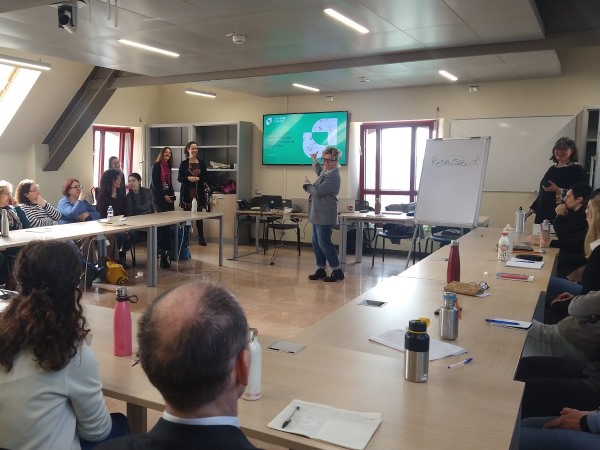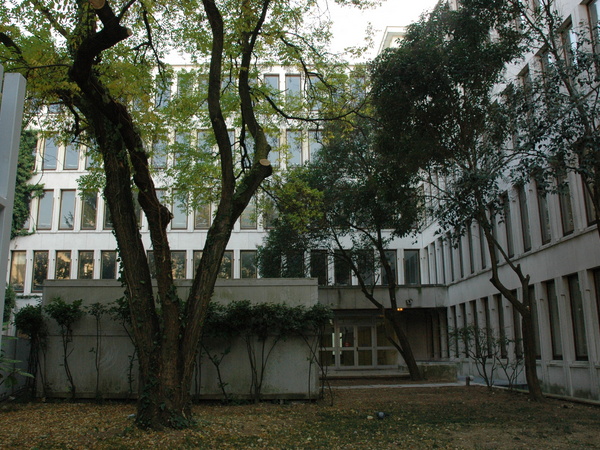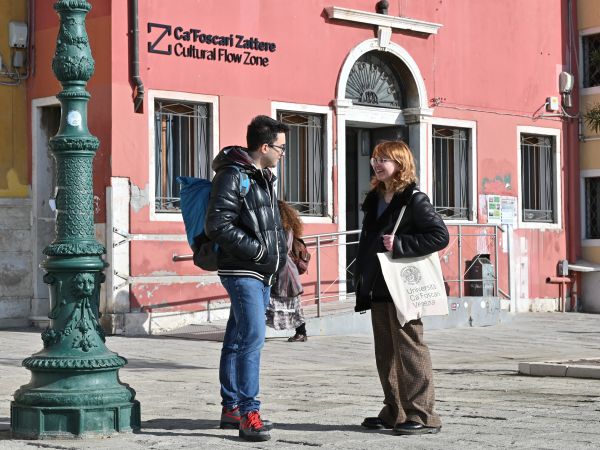Universities, Innovation and Entrepreneurship: The Time4UNIchange Project

Universities today face the challenges of a rapidly changing world. No longer solely places of education and research, academic institutions are being called upon to become hubs of innovation and active connectors within their regional ecosystems. It is in this context that Time4UNIchange was born—a project funded by the Erasmus+ programme aiming to rethink the role of universities, encouraging them to become increasingly open, entrepreneurial, and engaged both locally and globally.
Ca’ Foscari University of Venice took part in this initiative alongside three international partners committed to exploring the space and opportunities found at the intersection of academia and surrounding regional systems: UIIN – University Industry Innovation Network, Munster Technological University, and the School of Engineering (JTH) at Jönköping University. The university’s Innovation and Knowledge Transfer Office (PInK) led Ca’ Foscari’s participation, with project management coordinated by Luciana Gualdi. The innovation-focused office collaborated closely with the Venice School of Management, whose research expertise includes innovation ecosystems and the relationship between research and economic development, involving Professor Vladi Finotto and Professor Francesca Checchinato.
The project laid the groundwork for a cultural shift in higher education institutions, based on the idea that universities can—and should—act as engines of economic and social development. Fulfilling this role as “innovation drivers” means not merely transferring knowledge but establishing and sustaining an ongoing, fruitful dialogue with businesses, public bodies, non-profit organisations and civil society.
“In many universities, innovation strategies and external engagement are mainly handled by institutional structures such as technology transfer offices or innovation centres, often neglecting the direct involvement of the academic community,” explains Luciana Gualdi, Project Manager at Ca’ Foscari.
“Time4UNIchange aimed to bridge this gap, developing practical tools and strategic recommendations to help universities become truly entrepreneurial and innovative spaces, delivering tangible results that can be scaled and replicated in other academic contexts.”
Time4UNIchange sought not only to redefine how universities interact with their territories, but also how they shape their internal identity—recognising and enhancing the work of academic staff and building a culture of openness and collaboration.
Thanks to a collaborative approach, the project explored new strategies to overcome barriers that often hinder academic engagement, such as lack of time, resources and skills. The goal was to make it easier for university staff to take part in innovation and entrepreneurship-oriented activities, thereby fostering an open and inclusive institutional culture.
A Toolkit for Change
At the heart of Time4UNIchange is a toolkit of 40 instruments designed to support universities in their cultural transformation, helping them to embed external engagement and entrepreneurship into all activities and decision-making processes.
Among the tools most relevant and applicable to Ca’ Foscari’s context are:
- Engager Communities: An interdisciplinary network open to students, academic staff, and professionals designed to encourage the sharing of best practices and create a space for dialogue around external engagement initiatives. Inclusive and collaborative events could strengthen the sense of belonging within the Ca’ Foscari community and raise awareness of opportunities for interaction with the business world.
- Entrepreneurship Communities of Practice: A hub bringing together entrepreneurship experts and champions to support spin-offs, start-ups, and other innovative initiatives. This unique point of reference could foster creative synergies, consolidate an entrepreneurial identity, and provide a springboard for the development of new business ideas.
These tools are inspired by successful international initiatives such as the SMILE project at Leipzig University, which offers tailored support to young entrepreneurs, and Sweden’s Adjunct Positions programme, which facilitates mobility between academia and industry. Ca’ Foscari’s own MOSAICO Innovation Network already stands out nationally as a model of excellence in innovation and engagement with local stakeholders.
Best practices were also highlighted through another key activity of Time4UNIchange: the collection of 40 international case studies on cultural change in higher education institutions across Ireland, the Netherlands, Sweden, Italy, the UK, Portugal, Lithuania, Germany, and Belgium.
Strategies for the Future
During the project, a set of strategic recommendations was developed, offering a practical roadmap for enhancing external engagement and entrepreneurial activity. These tools and recommendations are now available as a guide for all universities aiming to be more innovative and regionally connected, fostering openness and collaboration.
- Raise awareness
- Create a central access point (website, intranet, office) for academics and external organisations interested in partnerships.
- Integrate entrepreneurship and engagement into academic job descriptions, making them an essential part of recruitment and staff evaluation.
- Communicate success
- Collect and analyse data on engagement activities through surveys, interviews and focus groups.
- Develop case studies and success stories demonstrating the positive impact of entrepreneurial and collaborative initiatives on local communities.
- Introduce incentives and rewards
- Establish awards to recognise academic and administrative staff who excel in engagement and entrepreneurial activities.
- Pilot models such as Employee Development and Salary Setting Talks, linking pay and career growth to institutional strategic goals.
- Create a supportive environment
- Foster a positive, enabling culture that encourages collaborative initiatives.
- Include information on engagement opportunities in onboarding programmes for new staff members.
All materials produced as part of the project—including the toolkit, case studies and strategic recommendations—are available at
👉 www.time4unichange.eu










